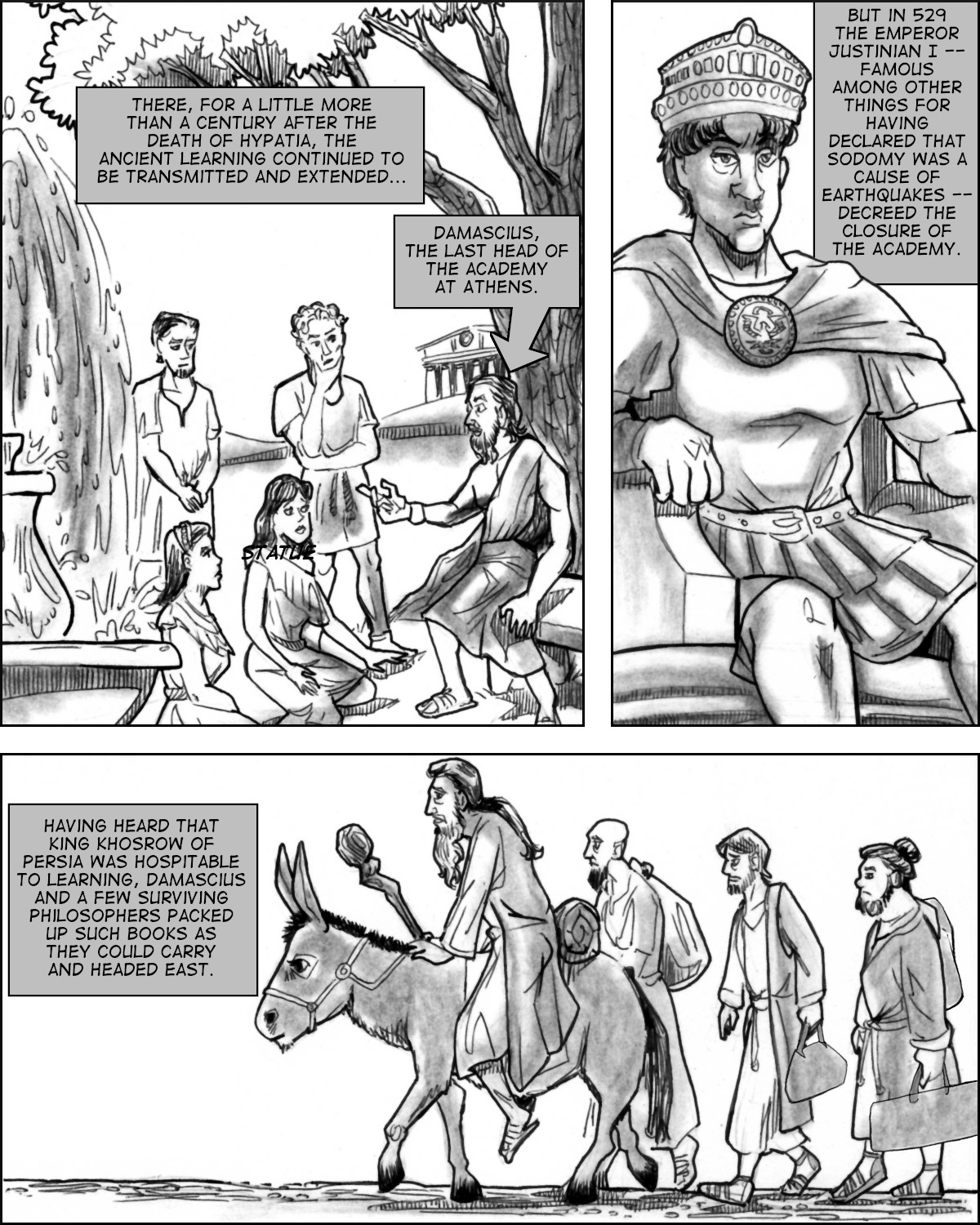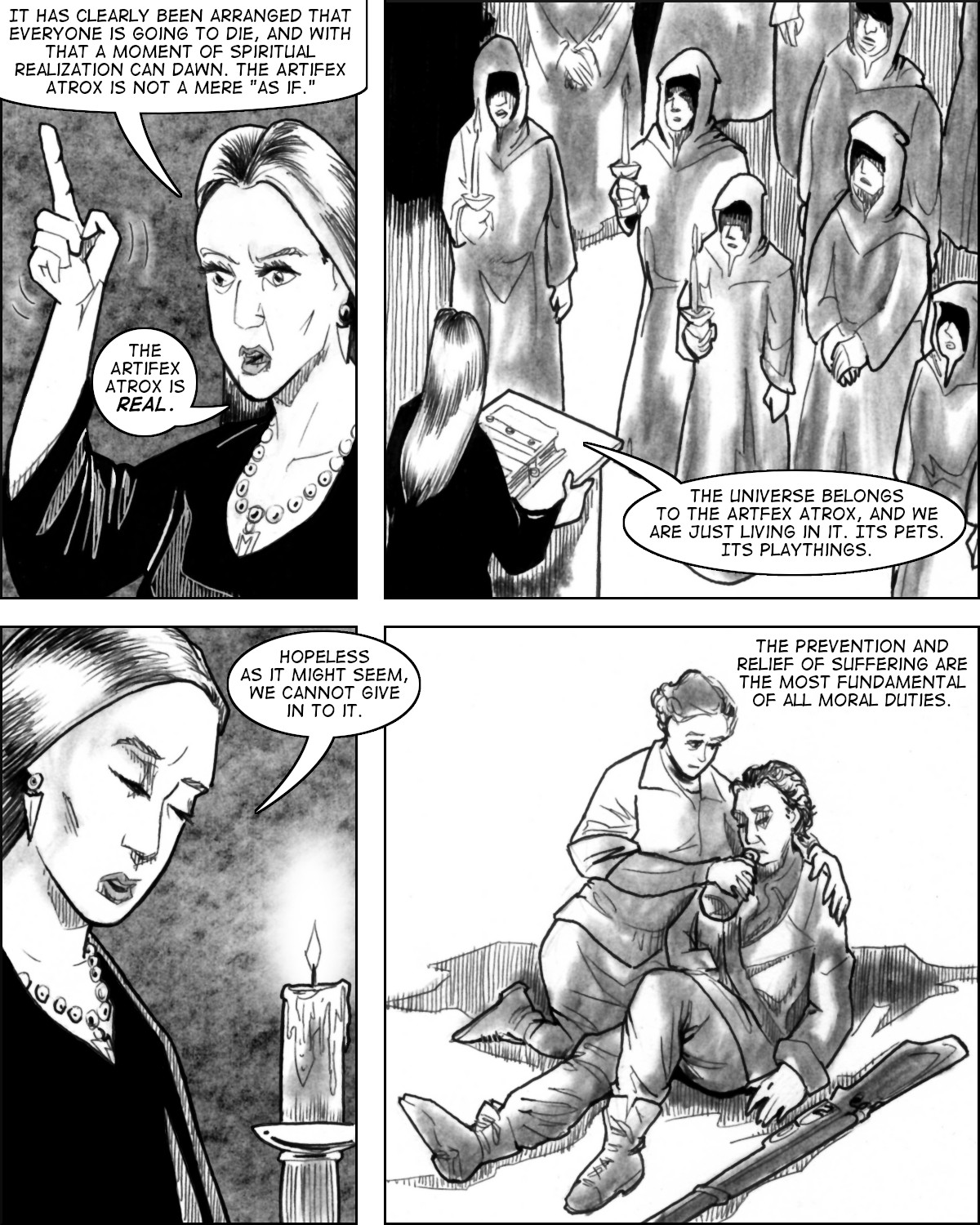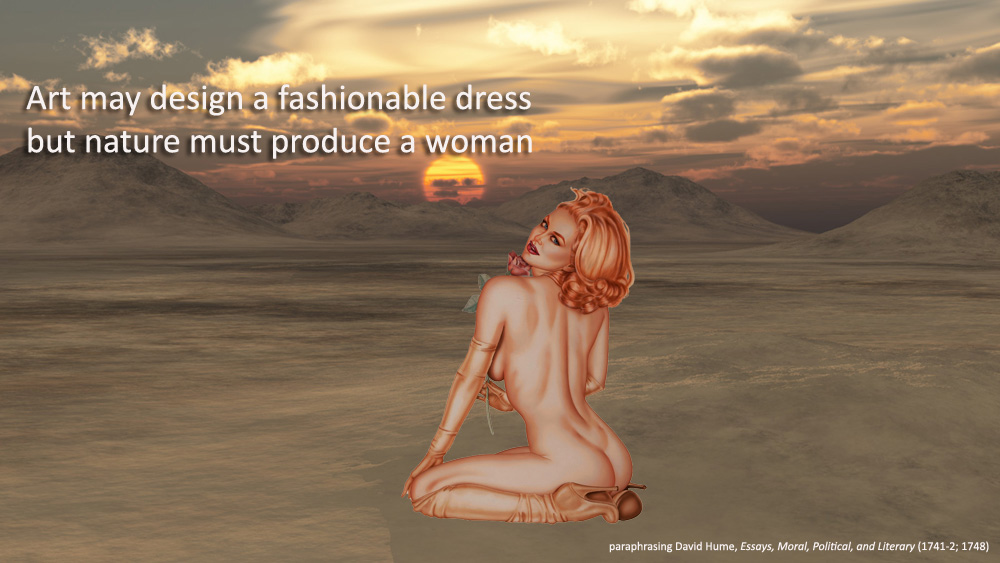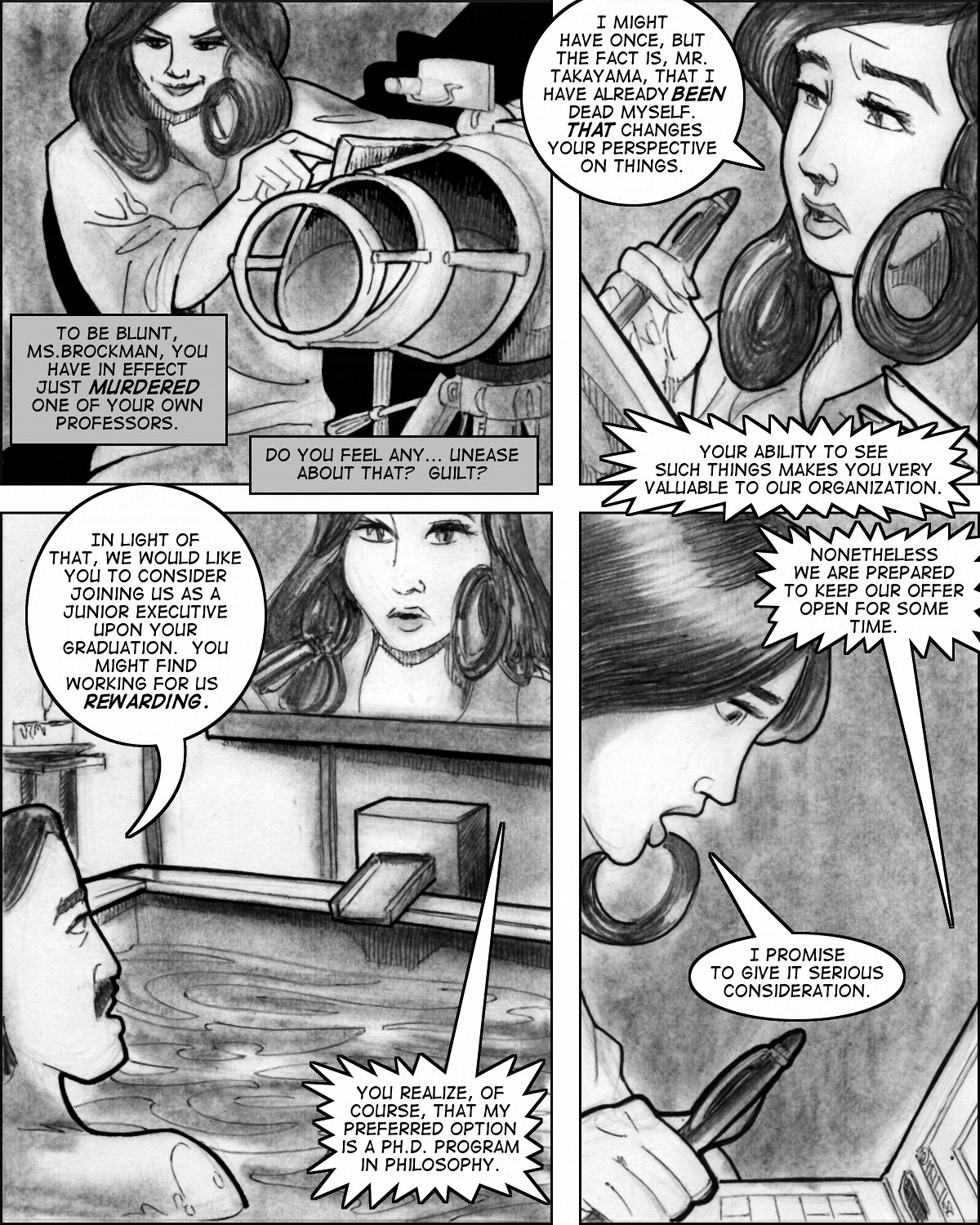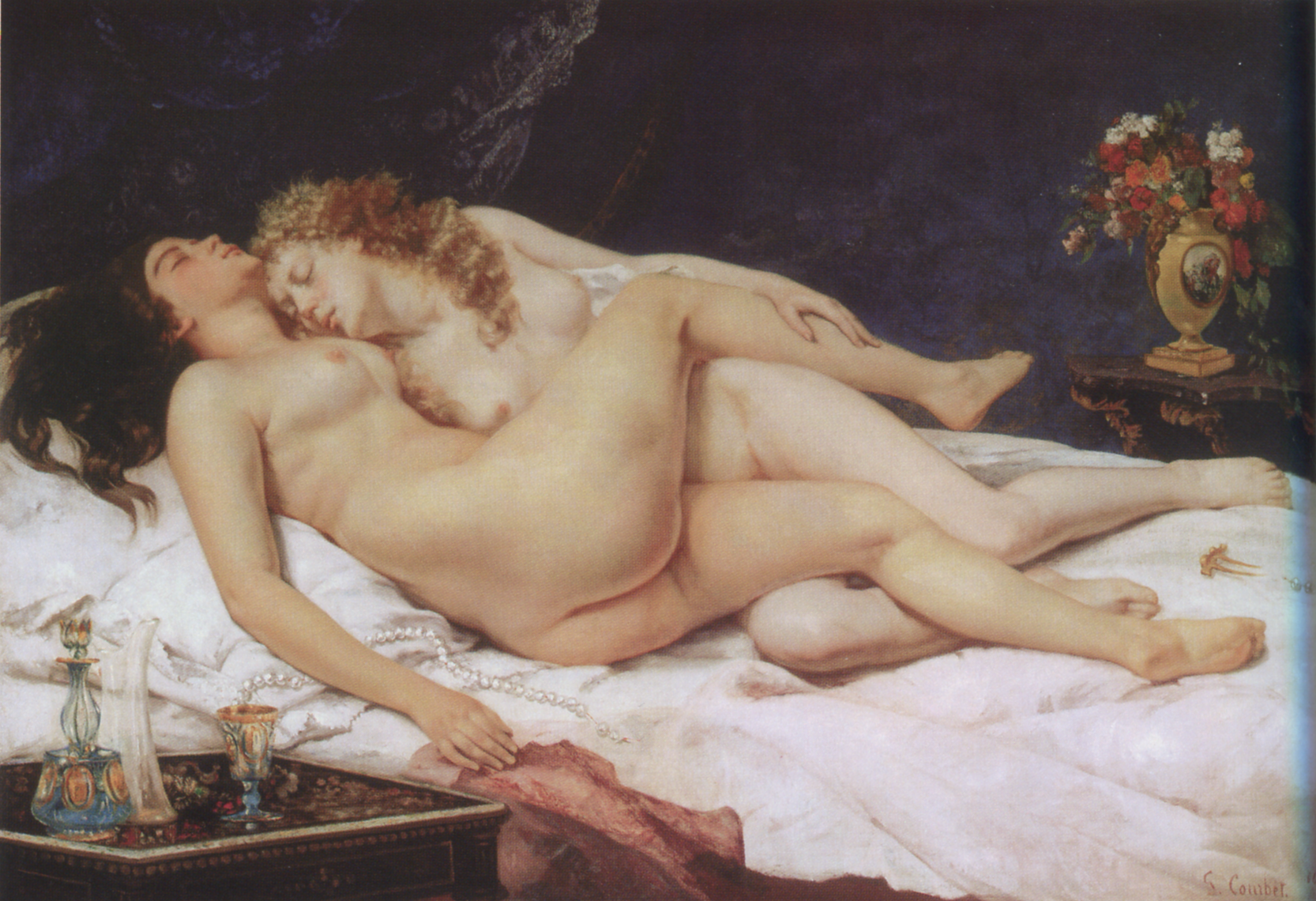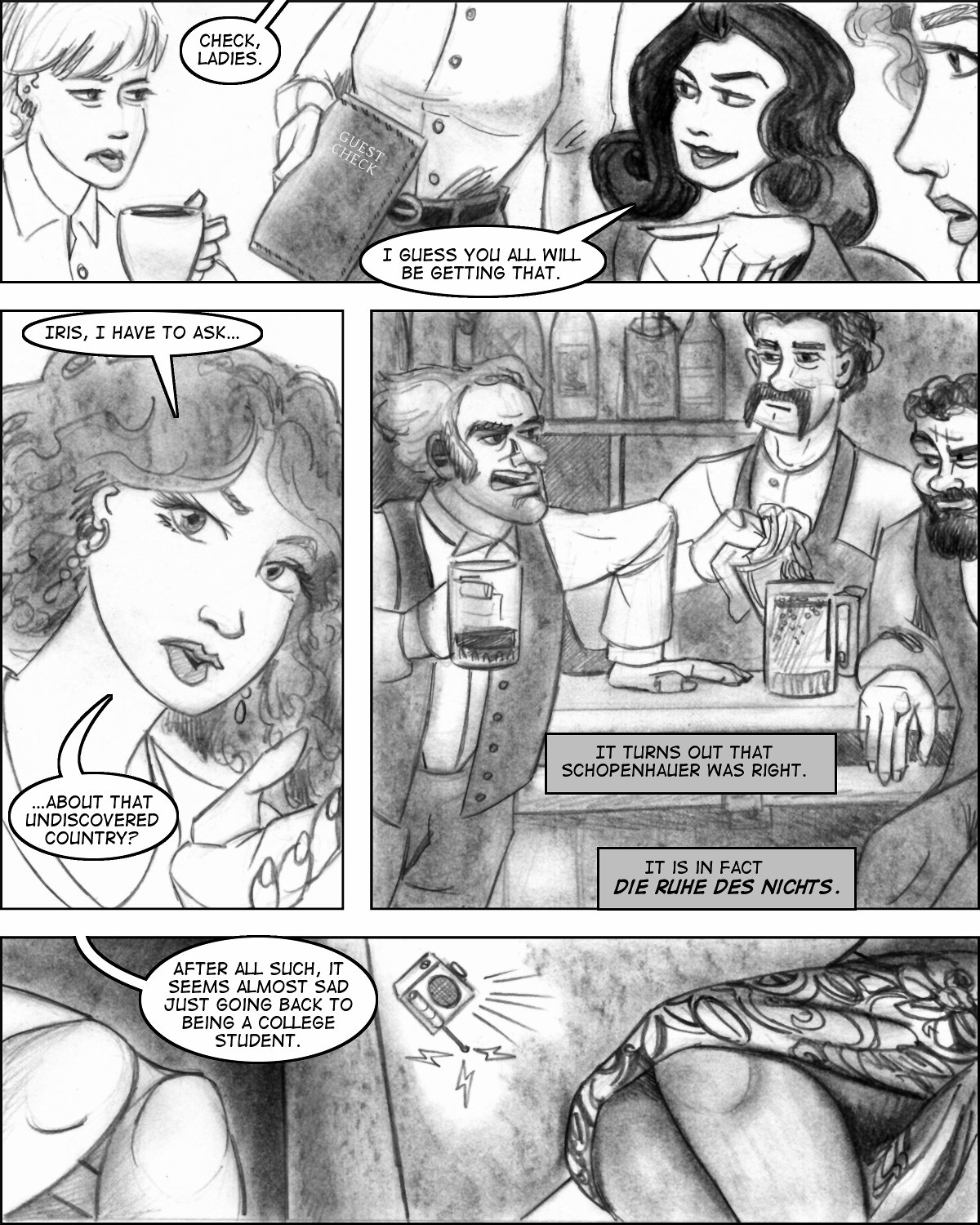So now I am going to engage in a bit of speculation about my own psyche. I have four conjectures about what need I might be fulfilling with my interest in one-way ticket punchers, and that means four posts (at least). None of the conjectures appears to me to logically preclude any of the others, so it is possible that all of them are true — we all have many needs, after all. It is also possible that any or all of them are false. As someone once said there is no royal road to science, and you have to go up a lot of blind alleys before you find the right path.
My first conjecture is that what I’m actually doing in writing one-way ticket-punching stories is terror management. The surest thing we know is that we are all going to die someday, and this prospect of our annihilation terrifies us. Most people cope with this terror either by adopting a religion that has a reasonably cheery view of an afterlife or by adopting some system of cultural meanings, either religious or secular, that reassures them that in spite of the temporal finitude of their lives they nonetheless have objective value. Both these paths are blocked to me. I know what the mad-dog naturalist knows, that death really is the end and that “objective” values or meanings are just illusions that careful analysis will dispel.
The thought occurs that while a mad-dog naturalist cannot avail himself of the consolations of religion, but those of philosophy are still open. There is something here. As a matter purely of the intellect, Epicurus was right. It is irrational to be afraid of death, for where we are death is not and where death is we are not. Death is not some sort of bad experience we can have, it is only the end of experiences. The problem for this elegant view is that we aren’t creatures of the intellect exclusively, or perhaps even primarily. (I shall grant that the view probably worked for intellectual supermen like Epicurus himself and also probably David Hume who clearly shared it but I, alas, am just not on their level.) The fear of death is like having a strong phobia, one that you are quite unlikely to rid yourself of even with the best of philosophy. The reason that this fear is so refractory is that it has probably been wired into us by our evolutionary history. Given how miserable life often is, nature needed a whip to wield over us to keep us going, and fear of death would have worked well. Those of our primate ancestors who lacked such a fear would have been succumbed to the dangers and fatigues of the world. Those who had it struggled onward, surviving to produce more little primates who would be our ancestors. Against the tremendous influence of millions of years of evolution, cultural innovations of the last few thousand years like philosophy struggle mostly in vain.
So what is one to do, aside perhaps from nurturing the faint and flickering hope that in one’s lifetime a positive technological singularity arrives and death itself dies? Well, one thing one might do is what I here have done, and try to re-imagine death as a process led up to by the most extraordinary of erotic experiences. Enough sweet will cancel out the bitter.
Bacchus’s research turned up any number of examples of people creating work that has the property of erotic experience ultimate in two distinct senses of the word, la petite mort and la grande mort at the same time. Here I’ll share two. One is a story — magical rather than mad science but well within the concept, entitled “Sculptura” and written by an author working under the name Redline. A young woman goes in for a transformation which it seems she pretty clearly knows will be one-way. But what a way!
She groaned, arcing her head back from the waves of pleasure caused by the crafting, and reached one flame-red hand towards her sex. The flesh there was taking on a more intense white-hot glow than the rest of her did, and I gently pushed at her spirit, guiding the curious hand away. She moaned loudly in disappointment, her head rolling from side to side as the energies of the enchantment coursed within her. Her insistent cries were more than enough reason for me to continue — her sexual energies were mounting swiftly under the effects of the spell, and I intended to use that to my advantage.
As the glow intensified, with patterns of orange and yellow dancing on the white-hot flesh, I began the core of the ritual. Her body slid downwards under my mental urges, and she lay on her right side, propped up by her elbow. Gently, I pushed her spirit body here and there, the flesh connected to it moving in unison. Her right leg drew towards her chest, sliding along the smooth marble of the studio floor, while her left leg angled back, the tiny toes curling back with the arch of her instep. Smiling, I noticed that the angle of her hips had parted her sex, and smiling to myself, I released the hold on left arm, allowing her curious fingers to slide towards it. Gently, she parted her womanhood, and slid a single finger within; her movements became more and more primal, more and more carnal. This was the moment I was waiting for, and as she tossed her head back in the throes of orgasm and opened her tiny mouth in a scream of release… I closed the crafting.
Readers paying attention to the title will well be able to guess where all this thaumaturgy is heading.
Rather more controversially, many of the stories associated with the notorious Dolcett have the property of providing their protagonists with an ecstatic and apparently voluntary end. An example called “Current Affair” starts like this:
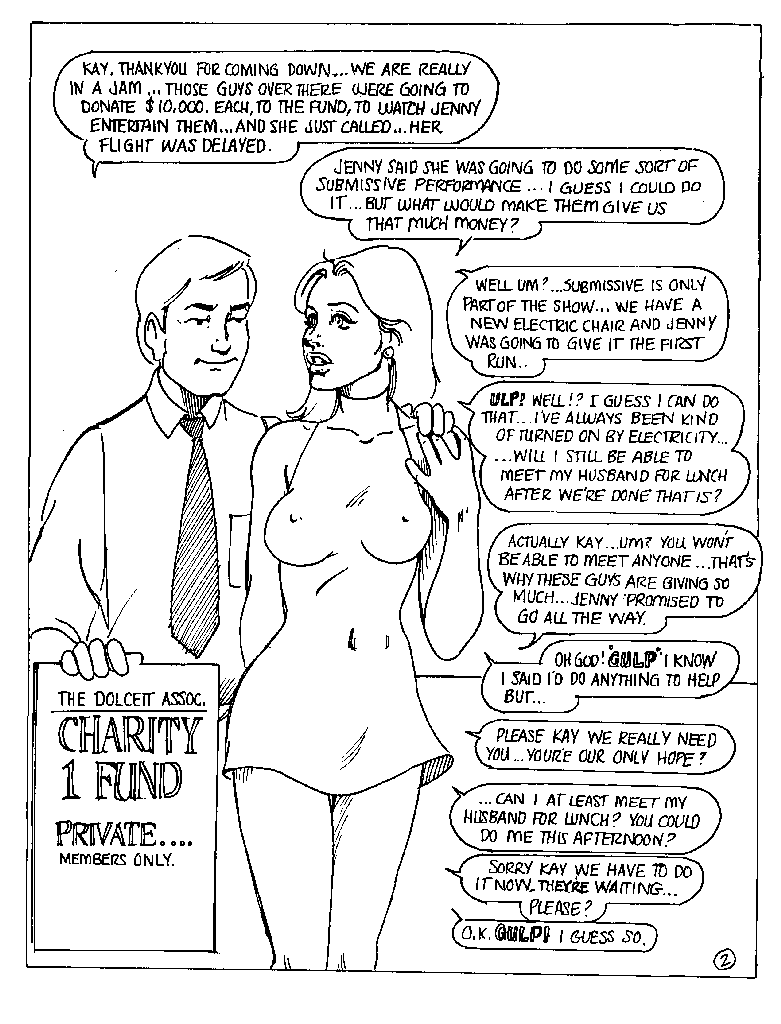
I wouldn’t defend this work as particularly well-drawn or -written, but it is within the concept. Our heroine clearly has terror (“Gulp!”), but she is managing it with the promise of an erotic payoff. If you have a strong stomach, you can follow the rest of the story here.
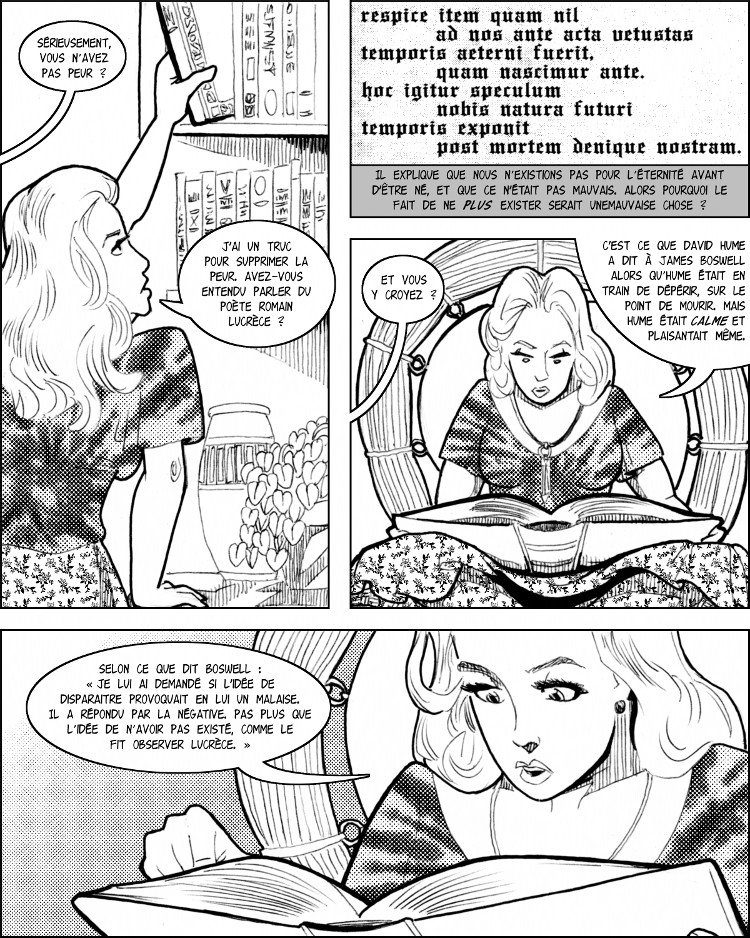

![]() Appât (Français/Version longue page)
Appât (Français/Version longue page) 
